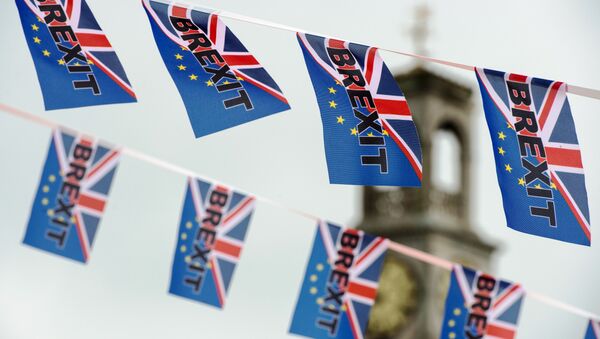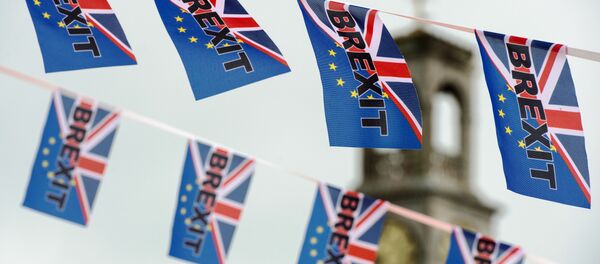"Economic consequences can be very serious. Of course, the fact Soros was right in the past does not necessarily mean he is this time, but I certainly think that if we vote to leave the EU, there will be very negative consequences for the economy here," she stressed.
Lambert added that London’s reputation as a financial sector could also suffer.
"Financial markets are always very quick to move. If they think there is weakness, companies that are considering their future investments will think twice about investing in the UK, they may be facing additional tariff," she added.
Moreover, Britain will struggle with the rise of unemployment level in case it decides to leave the EU, Jean Lambert said.
"We will see a rise in unemployment in case of Brexit. Those who say there will be no change are not looking realistically," Lambert said.
"Moreover, the government has not yet ended with its spending cuts on the austerity agenda, with more jobs we know are due to be cut in the public sector," she continued.
"I also have a lot of concerns over the workers’ rights in case of Brexit," she said.
However, the US might be not interested in signing a separate free trade deal with the United Kingdom in case of Brexit, Lambert said.
"The UK will desperately try to have its own free trade agreement with the United States, separate from TTIP [Transatlantic Trade and Investment Partnership] and the EU… But it is not at all clear whether the United States will rush to negotiate with the UK. If they can continue negotiating with the European market, why should they prioritize a smaller UK market?" Lambert said.
At the same time, Britain’s membership of the European Union is not an obstacle for Britain to have closer trade relations with BRICS countries, Jean Lambert.
Brexiters use the possibility of establishing closer trade relations with BRICS outside the European bloc as one of the arguments in favor of leaving the EU.
"India is not even queuing up to make trade deals with the EU, but there is a long queue of those who want trade relations with India. So, I do not think that the UK will necessarily queue-jump [to have trade deals with India] in case of Brexit," Lambert said.
"Also, our membership in the EU does not stop us now from developing our trade with other countries. We don't have better trade relations with BRICS countries presumably because we are not offering the things that they want. Brexit does not change that," she continued.
Possible Brexit will reshape the balance of powers within the European bloc, making Germany even more powerful, Jean Lambert stated.
"If one of the big three powers in the EU goes, there will be a power vacuum," she said.
Lambert stressed that once Britain has been a strong supporter of welcoming central and eastern European states in the union, making them angry by rolling back on the free movement principle.
"Britain has been a very strong supporter of the EU membership of central and eastern European countries. That is why they now are very angry seeing Britain rolling back on free movement," she said.
The United Kingdom prepares to vote on June 23 in a referendum on whether it should stay in the European Union on renegotiated terms or quit.





